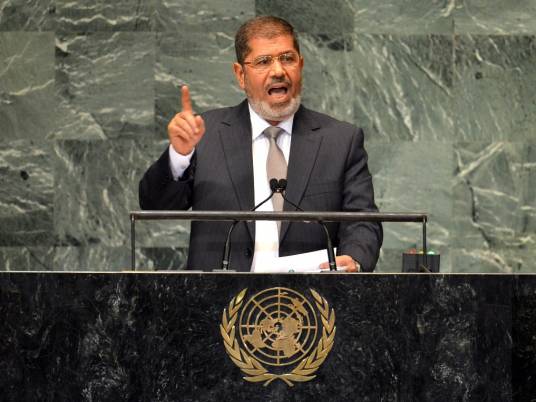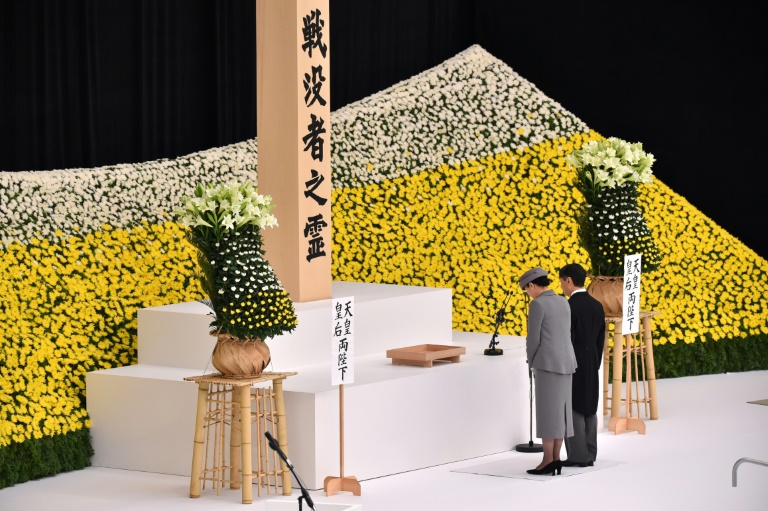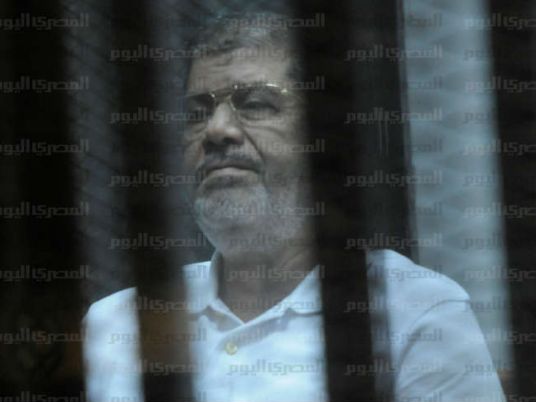
In recurrent speeches following mass protests against a controversial declaration through which President Mohamed Morsy claimed sweeping powers for himself, the country’s leader distinguished between “good opposition” and “bad opposition.” In a 23 November speech, he compared the bad opposition to termites eating through the bones of the nation, and called for the “filtering and exclusion of such termites so that the country goes on.”
The ensuing chaos and violent confrontations between his followers and opponents prompted further addresses by the president. Throughout all occasions, these addresses crystallized key and sometimes contradictory issues.
Morsy delegitimatized his opposition by at times describing it as a detached minority and at others as a dangerous conspiracy and a threat to stability.
On 6 December, Morsy was compelled to speak to the nation following the clashes that broke out the day before around the presidential palace between his supporters and opponents, which left at least seven dead and hundreds injured.
A minority
In his 6 December speech, Morsy repeatedly referred to his opponents as a minority that seemingly cannot come to terms with the will of the majority. This minority is asked to “concede to the will of the people,” who have made their choice in the elections, rather than pursue their “private interests, or the will of particular parties and groups.”
Morsy thus reiterated the assumption largely held by the Muslim Brothers: That they secure the backing of a vast majority of the populace, despite the small margin by which Morsy has won the second round of the presidential election against Ahmed Shafiq (including tactical votes). He also emptied his opponents’ criticism of its content by positing that his decisions as the elected president are in the ultimate interest of the nation, and any opposition to them is moved by selfishness or mere elitism.
That is why the term “legitimacy,” referring to his popular mandate, is the most recurrent word in Morsy’s discourse, as well as the accusation that his opponents are seeking “to overturn legitimacy.” He justified the move to immunize the Constituent Assembly in his decree — despite a widely criticized draft constitution — by stressing the fact that it was elected by an elected Parliament.
Likewise, he defended his decisions on the grounds of being an elected president.
“Isn’t that democracy?” he exclaimed. Since, according to Morsy, “the will of the people cannot be expressed by angry crowds,” the ballot box is posited as the epitome of democratic practice, and consequently, “revolutionary legitimacy is over, and now it is popular legitimacy that rules,” as he said in an interview on Egyptian TV on 29 November.
The underlying premise in this discourse is that people practice democracy at the moment they choose their representatives, and the rest should be left to the decision makers elected by them. That premise is seen in statements like “the people have chosen, and now there are powers in charge of the country,” and “this is democracy — when one comes [to office] through elections, he becomes in charge. In the next elections, people have the chance to say whether he did good or bad,” which came out during the 29 November interview.
He deemed it sufficient to state that “the constitutional declaration achieves the desires [of the people] and the necessities of this [transitional] phase,” justifying such a statement with the claim that he has studied the matter extensively, saying: “I lived among the people. I have good knowledge of this society. I come from it and know who was doing what.”
Another justification comes from the fact that he was elected to office: “It is impossible for an elected president like me to use his powers to oppress.” As if a matter of skill, Morsy likened good policy in his 29 November interview to “a very precise surgery” that Egypt needs at a critical phase, insinuating that the elected president knows what’s good for the people who elected him.
A conspiracy
Not only is he entitled to make such decisions by virtue of being elected and of having a good evaluation of the “critical situation” Egypt is going through, but also from the position of a high-ranking official with special knowledge of the whereabouts of corrupt individuals and conspiring agents. He thus defended secrecy as a pillar of good politics.
“I have information,” Morsy states repeatedly. When asked by the interviewer on state TV about the details of the conspiracy he often speaks about, he preserved himself the privilege to withhold them.
“It is my job to protect the homeland from any conspiracy. I have more information [than others] as the president of the republic, and it is my duty to intervene when I sense that the country is in danger,” he said. “This is the role of the leadership. If such information is disclosed, it could be harmful rather than beneficial,” he added in his 29 November interview.
Morsy thus needed to maintain a discourse of perpetual danger impending upon the nation. In his last speech, he states outright that he was compelled to issue his decree because of the great danger threatening the nation.
As he failed to mention convincing arguments for this lurking threat, Morsy used vague phrasings to insinuate that something is being planned against Egypt.
“For instance — just an example — a person who was a defendant in the case of the Battle of the Camel held a meeting the other day!” and “Those who hide abroad and contact people inside … I know what you’re up to!” he said in his 23 November speech.
According to Morsy’s scheme, “the enemies of the people” — the feloul, or supporters of the Hosni Mubarak regime — wish to bring Egypt back to the days of the old regime: “They don’t want Egypt to stand on its feet.”
“The forces of evil” and the “conspirators” in Morsy’s narrative are “abusing the difference of opinion” to advance their private interests, and to slow down revolutionary progress. The conspirators are people who accumulated riches through corruption under Mubarak and wish to stall the building of state institutions. The stolen money — the story goes — is used to hire thugs to create chaos and overturn decisions by the president that reflect the will of the nation.
In his last speech on 6 December, Morsy asserted that the armed thugs who killed the protesters in front of the presidential palace on 5 December were arrested, and indeed confessed having been paid by the suspected feloul, which he abstained from naming. Morsy even specified that 40 out of 80 arrested armed thugs confessed that they were paid and revealed their ties with “certain political forces.”
He implicitly declared that “the third party” has been revealed. It is the sponsors of thugs “inside and outside the country,” those who seek “to burn the country and destroy it.” Those unknown individuals have “infiltrated the ranks of the people of opinion,” according to him, and as a consequence have deceived the latter into taking a path of opposition that essentially overturns legitimacy and legality and caters to the vicious plans of the feloul.
Threat to stability
Morsy’s attempt to sound like a representative of the will and the good of the whole nation has also propped words such as “stability,” “security,” “production,” “prosperity” and “progress” in his speeches since the beginning of the crisis over the constitutional declaration. His defense of his decree is underlined by a key argument: “We need to have a constitution in place as soon as possible so we may finally enjoy stability, security and begin to work and produce. Otherwise, we’ll never be done with it!,” he said on the 29 November interview.
To prove that his decree is just what Egypt currently needed, although he canceled it with another decree later on removing some of the contentious matters under pressure, Morsy constructed a linear progression that starts with his struggle for democracy under toppled President Hosni Mubarak, through the revolution, and up to the series of elections that were held since January 2011, namely the referendum on the constitutional amendments and the parliamentary and presidential elections.
“We are walking on a clear path and toward a great target that is a new stable Egypt,” he said in his 23 November speech, placing himself on a continuum of revolutionary achievements.
He spoke on behalf of those who toppled the old regime.
“We, the 20 million Egyptians, must work together to carry out development, just as we managed to change the regime,” he said on the 29 November interview.
Borrowing from Mubarak’s lexicon of stability, Morsy asserted that protests are permissible, but not those that hinder production or traffic. In his 6 December speech, instead of addressing the accusation to his party that they incited their supporters to attack the sit-in in front of the presidential palace on 5 December, he blamed the opponents of the decree for resorting to violence “deliberate killing, vandalizing and terrorizing,” and for “halting the production process” and “tarnishing Egypt’s image.”
“I like the protesters, they are brothers and sisters, but I want them to produce, so that internal affairs may stabilize. It’s better that we go produce and protest in the evening. We should not halt production in the factory. We have many youth who ought to live, marry and be stable, and Egypt must rise,” said the president in the state TV interview.
This piece appears in Egypt Independent's weekly print edition.



